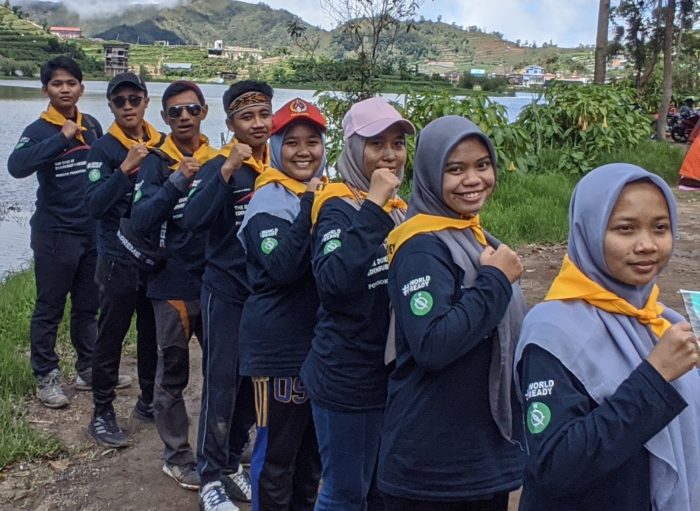Making the Award sustainable yet accessible
Knowing what it really costs to deliver the International Award to a young person in country is essential to making the Award sustainable. We are an unusual charity in that we ask participants to pay, but then we believe that few things in life are truly worthwhile if they’re free. We are also aware that this cost needs to be minimal as participation can incur additional expenditure. It is therefore inevitable that we must find ways to subsidise at least our costs to those families who cannot afford the full fee.
Likewise, we need to know what it costs to support a partner organisation delivering the International Award in terms of training, advice, materials and quality assurance. Charging a licence fee to such organisations is again essential to be sustainable. Yet we must also be ready and willing to subsidise those community organisations who simply can’t afford the full fee.
This requires sophisticated knowledge and financing as well as understanding philanthropic supporters. Directing and employing philanthropic resources in such a targeted and meaningful way is hugely important. Australia has adopted this model and it’s proving to be immensely successful for all parties, especially as it’s enabling the country to be one of the first to reach that aim of 20% of all participants to be at risk or from marginalised backgrounds.
A breakdown of the social value of the Award in country:
The Czech Republic

Canada

Aotearoa New Zealand

Australia

The financial challenges
The Award generally, and the Foundation in particular, has managed to weather the pandemic storm, although not without considerable difficulties.
In the face of three difficult years financially, the Trustees of the Foundation decided to strengthen the senior leadership team and initiate a Comprehensive Sustainability Review in 2019 to re-balance the Foundation’s commitments against resources. The actions taken failed to avert a particularly traumatic year end to 2019-20 when global disruptions, major humanitarian disasters and the onset of the Covid-19 pandemic created a serious downturn in philanthropic income. They have, however, enabled us to better cope with the subsequent storm.
We have re-set our ambitions, re-calibrated our commitments and re-balanced our resources. Each staff team is now responsible for generating income, with a higher proportion being from more predictable sources, as well as being accountable for their expenditure. Everyone is fully aware that we have to live within our means yet still deliver. The next couple of years are likely to be immensely challenging, but we are determined to make it work and deliver – financially and operationally – results that will give our supporters confidence and hopefully pleasure.
The invaluable support of our World Fellowship
As a way of introducing and recognising donors to the International Award, the World Fellowship is unrivalled. Without the extraordinary support of approximately six hundred World Fellows and Benefactors, the Foundation in particular, would never have been able to achieve all we have over the past ten years and more. Yet the way our donors support us today has also changed.
Most donors prefer revenue giving rather than capital and a relationship depends upon whether or not they are actively giving. Yet it has become abundantly clear that our friends appreciate the relative equality of the Fellowship, the fact that it doesn’t matter where you come from, as a World Fellow you are giving the same. Our Benefactors are recognised for being willing and able to give significantly more, but how much is between them and the charity; there are no multiple levels published.
Although elements of the Foundation’s work can be sustainable, there will always be a requirement for philanthropic funding to help grow and develop the Award. As such, the World Fellowship and our International Special Projects will remain at the forefront of our fundraising efforts, soon to be joined by our Charter for Empowerment programme to engage with business and institutional funders.
The desired outcome is that millions more young people, especially those who are at risk and marginalised, will be inspired to transform their lives and become the best that they can be.







